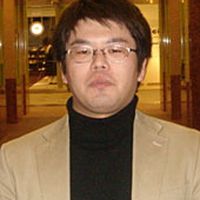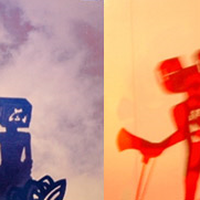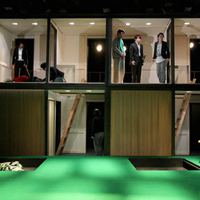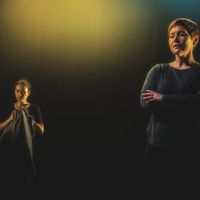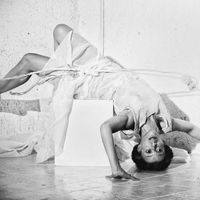Japanese theatre critic reflects
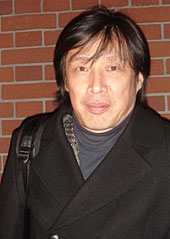 [caption id="attachment_2816" align="alignright" width="170" caption="Kentaro Matsui, Japan "]
[caption id="attachment_2816" align="alignright" width="170" caption="Kentaro Matsui, Japan "] [/caption]
[/caption]Contributed by Ive Stevenheydens
'To face and cherish our differences and similarities' - Kentaro Matsui, Japan.
Kentaro Matsui is a theatre critic and also Programme Director of the Tokyo based Setagaya Public Theatre, a non-profit structure funded by the City of Setagaya Council (the most populous area in central Tokyo).
"I have worked a lot on the so-called Western avant-garde art of the twenties and tried to introduce this to the Japanese public," he introduces himself. "In the Setagaya Public Theatre we showed, for instance, 'Woyzeck', directed by the European Josef Nadj, who was born in Hungary and now is based in France. On the other hand, for his piece 'Asobu', which premiered at the Avignon Festival in 2006, the choreographer organised workshops and auditions in which a mixture of Japanese Kabuki and Butoh dancers took part. Set on the stage of a stripped down Noh Theatre, this was a special piece. Being Japanese, I had not previously felt that we met with the central European scene – which I consider more marginal, at least in the scope of the whole of Europe. Working on 'Asobu', I felt we really met in between Western and Eastern scenes and cultures. In a certain way, there was also a strange neutrality about the piece."
Asked about the notion of contemporary performance in his country, Matsui refers to the (recent) tradition of Japanese dance. "Hijikata Tatsumi founded Butoh in the middle of the sixties. After that, many people in the dance scene – both dancers and choreographers – were inspired by his way of moving, being and behaving. They introduced these techniques into their works, which became heavily influenced by Tatsumi. In the seventies the performing arts in Japan became both more conceptual and commercial. At this point the younger generation did not know where Japanese Butoh theatre had come from, and it developed in many diverse ways. Speaking about the contemporary, I have to say that the position of modern dance theatre in Japan nowadays is extremely complex. It is intertwined with political history, sociological ideology and cultural conflicts."
Aggressors
Expanding on this, Matsui refers to the country's recent history and to that of Asia: "The Singaporean writer Kuo Pao Kun once stated that modern theatre was developed by intellectuals and artists as a strategy to develop countries and territories as (free) nations. In other words, 'modernity' in Asian art was a way to fight back against colonisation and the colonising countries. This definition of 'modernity' is actually an ambivalent one: Kuo Pao Kun defines it as a tool to contend with colonising powers, knowing well that by modernising itself, Asian culture would also conform with the West. Furthermore, imperial Japan was one of the aggressors. This country occupied in the past – be it in different moments of time – tens of territories including Hokkaido and Okinawa (Northern and Southern Island, now part of Japan), Korea, Taiwan, Burma and Hong Kong. In that sense, during colonial times Japan symbolised a way to overcome the influence of the 'West' for the whole of Asia. So if you think about this further, modern dance theatre was in a sense a reaction to that. It was in fact a way to follow the West."
Matsui feels that nowadays there still exits a gap between Japanese people and those from other Asian countries. "There is a knot in the line here. One of the first steps in getting to know each other across the broad region of Asia, is to start realising our common history again. In fact, the older generation still talks about colonisation, but the younger one does not acknowledge this part of history any more. We have to accept and admit that Japan was the aggressor. Moreover, we have to face our differences and our similarities. They both need to be cherished."
Gap in daily life
Japanese subcultures are, as Matsui argues, partly retraceable to Japanese colonial history: "They are fed by a feeling of being lost, of having no, or an ambivalent, identity – this is a very strong feeling amongst Japanese. We are puzzled. The imperial system has not changed the country much from how it was before the first and second World Wars. The political system has not changed very much either. Ordinary people's mentalities have not changed a lot but society has become modernised. One hundred years ago, Japan wanted to be a modernised country like Western countries. We are there now and this has dramatic effects. On the surface of social structures everything has changed dramatically. A gap exists between daily life in society and our body or our psyche which is still connected to the era before World War II."
Matsui is quite happy that, as he describes it, the arts and culture in almost every Asian country are currently undergoing a process of modernisation. "Asian countries are experiencing conflicts between traditional theatre versus modern or contemporary theatre," he explains, "and these conflicts connect us. For Japan this means separation. South-Korean, Malaysian or Indonesian artists and audiences are mixing and fusing the old and the new much more. Actually, each country is developing in its own different way. So this process of modernisation for all the Asian countries is a very exiting period. We can look for differences in how we relate to influences from the West and to each other. We will be fighting with each other on an intellectual level, in a good way. And honestly, I see no clear goal for the future in all this. We just have to continue. Today I am living in Japan, but at the same time I am living in Asia. We have to establish an Asian unity, come to acknowledge the fact that we are living in the same part of the world and that we can share and compare things together. This process will – hopefully – never be finished."
'I see mostly new versions of old forms'
Alison Andrews, Performing Arts Officer in the Yorkshire region for the Arts Council England. "Defining where yesterday ends, contemporary is and tomorrow begins is a highly enjoyable exercise but an impossible act".
Read more: UK: performing arts operator reflects
There are many visions of 'the contemporary' in our region' -
In 1999, Amna Kusumo and three cultural activists founded Kelola, a national non-profit organisation that promotes the vitality of Indonesian arts.
Read more: Indonesia: performing arts operator reflects
'We are interrelated through history'
"I like to interpret the word 'contemporary' literally: a moment in time," says Daisuke Muto, Tokyo based dance critic and teacher at the Gamma Prefectural Women's University, Japan.
Read more: Japan: dance critic reflects
Back to main article:
Asia-EU: 4 performing arts operators reflect
Similar content
15 Apr 2008
15 Apr 2008
from - to
09 Dec 2016 - 18 Dec 2016

